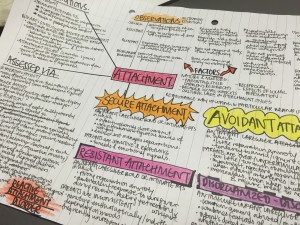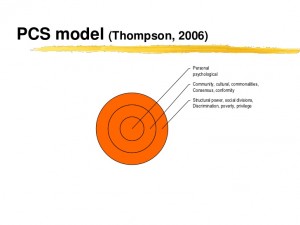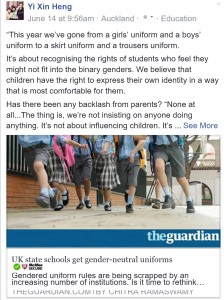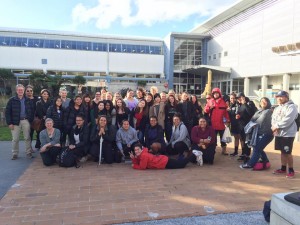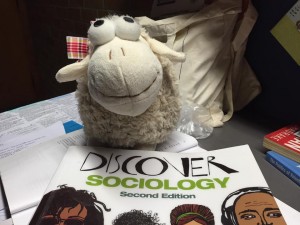‘I thought that I’d been hurt before
But no one’s ever left me quite this sore.’
These words were playing in my mind as I was studying for my last paper. Apart from being the well-known lyrics of my favorite Zumba song, I could not help feeling that it adequately captures my sentiments about social work.
I was refreshing my brains about orphanages in Romania, where research about infant attachments was done some time ago. That particular research project showed that even with good physical care and intellectual stimulation, these orphans grew up with a host of social and emotional problems. The busy caregivers simply could not afford time to cuddle, hug and give them the sensitive care they needed*.
‘Got a feeling that I’m going under
But I know that I’ll make it out alive’
The beat drummed in my ears, and determination thumped. Learning about these situations does not make me feel sorry. It makes me feel angry. I feel blood rising. From where I am seated, my eyes start to flash at the thought of the injustices we seldom pay attention to.
In social work, we were made aware that we tend to individualize poverty. That means that we often assume that an individual has done something wrong to end up in ‘this state’. But there are so many social and political forces at play – forces that are determined to let some in society remain as underdogs.
I really love this model that we learnt in class. It says that oppression works at the personal, cultural and structural level (Thompson, 2006).
- Personal: ‘I constantly perpetuate stereotypes by thinking that poor people are ‘more stupid’ and so, less deserving of help.’ Or ‘I wince when someone says ‘he became disabled’’
- Cultural: ‘I subscribe to the belief, subconsciously or otherwise, that people from ethnic minority backgrounds are less likely to go to university’
- Structural: ‘I am barred from seeking jobs, and protection from such discrimination, on the basis of my sexuality.’
It makes me see clearly how there is such a wave of countervailing pressure that prevents people from succeeding. Battered with damaging stereotypes and negative sentiments on a day by day basis, certain people have to push so much harder against the tide of opinion to succeed.
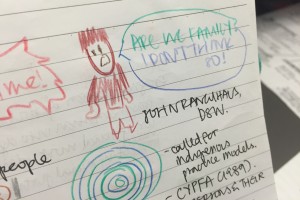
John Rangihau’s report, Puao-te-ata-tu, revealed the horrifying extent of institutional racism in the Department of Social Welfare, NZ
‘You watch me bleed until I can’t breathe
Shaking, falling onto my knees’
Exposed to how people are unjustly treated on the basis of gender, sexual orientation, ‘race’, physical ability (and many more), I do leave each social work session feeling a teensy bit worked up. (Watch these videos to get a sense of how my emotions are stirred, after every lecture: Babakiueria, Harlow’s study on monkey attachment)
But I also walk down Epsom Avenue with a sense of hope. I feel empowered, as a social worker. As if I’ve been given the tools – a microscope to examine a social problem, a spanner to explore the inner workings of a system. And suitcases of words I can use to name the nameless enemy. (I have since had many debates with my friends over the legitimacy of the denial of LGBT rights, passionate discussions over the need for gender neutral toilets and uniform).
‘And now that I’m without your kisses
I’ll be needing stitches’
It threw me into deep thought over my actions. What am I actually doing to address poverty? To counter these forms of oppression? It made me really frustrated at times, because I could not help thinking how ill-equipped I was to promote social change at broader, structural levels, for now. There were also occasions where I chided myself for devoting too much attention to ‘selfish, personal matters’ instead of thinking about these pressing global issues.
But social work also recognizes that the person is political. That social change can best start at the personal level – reconsidering our political views and attitudes towards certain groups of people – before eventually rising to a crescendo. In that, this social worker is proud to say that she is actively doing her part to shape the online discourse. To the detriment of my studies (yikes!), I now spend quite some time sharing articles that promote alternative, more inclusive views on Facebook. I fervently thumb through shelves of book in the general library on a personal mission to learn more about social welfare models (that are only covered in Year 2). My current fascination is with the Nordic model, which explains the books that are sitting on my desk.

Sometimes, there are feelings that I am too small to make a change (literally as well, for those who know me). But I am reminded that there is still so much beauty.
‘Now I need someone to breathe me back to life’
Thankfully, I am not in this alone. It would be dreadfully tiring if I did not have some support. My social work whanau (and Zumba) has been my main source of comfort. If I needed someone to rage with after a stormy lecture on the history of patriarchy, I just had to look left and right.
I have much aroha for my 72 social work cohort mates (A rousing rendition of Te Aroha is brought to mind. We sing it to start the day every Friday, along with a karakia and whakatauki, as a reminder of the diversity that exists), and I hope we soldier on. Underpinned by principles of social justice and human rights, I am confident that we will achieve our graduate competency at the end of four years (complete with a full driver’s license, no less) to promote social change and development, social cohesion and the empowerment and liberation of people.****
*It’s not just orphans in orphanages. It’s kids everywhere, even those who are raised by their biological parents. Caregivers who reject their kids when they need attention, or who overstimulate them result in kids with developmental issues too. In fact, the quality of early childhood education & care affects later friendships, romantic relationships… because these early bonds determine ‘internal working models’ – whether the kids think they are lovable or not. You can imagine how harsh it is for a kid to grow up into a person thinking ‘I am not deserving of love’. And this is not a pathological/ psychological issue, but a phenomenon as a result of unhelpful parenting styles that are too commonly observed.
**To defend myself against my fellow social workers’ outraged cries of ‘Stitches! Weren’t we told to avoid medicalizing social work?’ That’s the title that I chose because of how I wanted to weave my favourite Zumba song into this tribute to Sem 1 BSW @ the Faculty of Education and Social Work. But, of course, I acknowledge how my use of language may have contributed to the discourse, which is productive and has oppressive potential. Failure to acknowledge that will mean that this social worker is becoming a vehicle through which oppression manifests itself.
***Reference to above^ I retained my SOCWORK113: Culture & Diversity knowledge pretty well eh. It has been 4 days since our paper. Dear readers, for more information on Social Work Year 1 papers, feel free to check them out here.
****Do I need to do in-text citation for the IFSW Global Definition of Social Work? 😉
